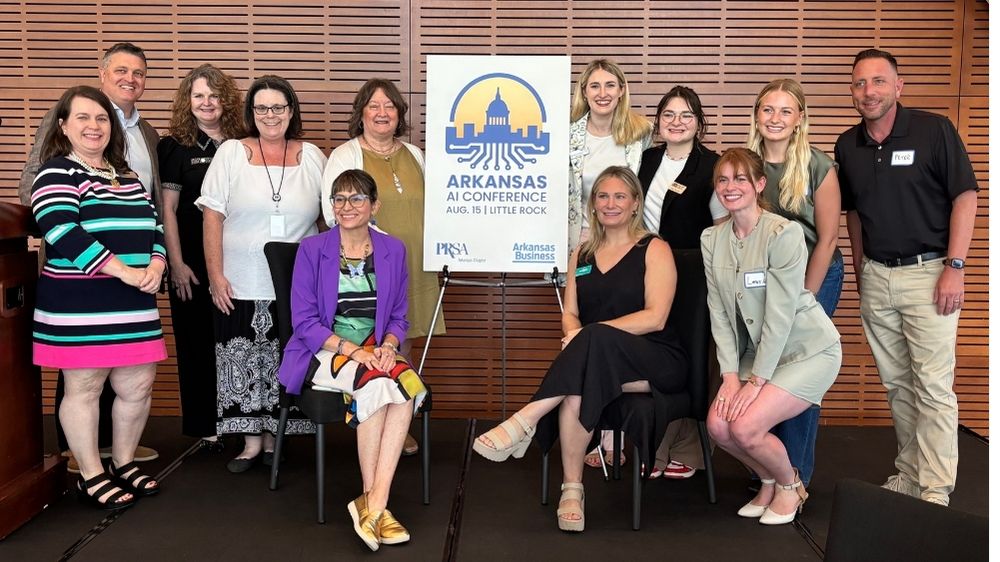Big Takeaways from the AI Conference
Our Sr. Marketing and Communications Coordinator, Holland Hayden, and Marketing and Communications Coordinator, Ella Sands, attended the recent AI conference, pictured second from the right in the first and second rows.

AI continues to dominate most conversations nowadays in technology, education, and business. At a recent AI conference, experts shared perspectives on how AI can be responsibly implemented, how it will impact education, and why human creativity remains essential. Three themes emerged as the most critical takeaways.
Responsible AI isn’t a side note — it’s where the conversation has to begin. There are many discussions focused on highlighting the importance of treating AI as a tool rather than a companion, avoiding the tendency to humanize it. Ethical use requires a multitude of practices.
- Transparency on the usage of AI is always wise.
- Accountability helps to maintain human responsibility.
- Respect for intellectual property is critical as well.
This can be done by avoiding deepfakes, copying others without their permission, and misleading content. Lastly, being aware of your own biases and how that impacts the AI
you are using. One can achieve this by using inclusive language, avoiding stereotypes, and always seeking out balanced perspectives. Using these practices form the foundation of a trustworthy adoption as well as long-term sustainability of AI systems.
The second takeaway was that education will define the next generation’s relationship with AI.The future of AI will be shaped in classrooms as much as in boardrooms. While Arkansas has made strides when it comes to access to computer science in education, gaps remain, particularly in rural areas. Panelists emphasized that future generations will only know a world with AI. Due to this changing reality, education is shifting. The central question surrounding AI is no longer whether or not they used it, but how they used it. This requires a reframing within education and integration of AI tools into everyday learning.
Again and again, the point was reinforced that human creativity is the vital engine ensuring AI works in service of people, not the other way around. AI offers extraordinary capabilities in reducing mental load, from filtering information, summarizing meetings and supporting decision-making. Yet the consensus across the conference was clear, in that AI on its own does not create value. The human role of creativity and vision remains irreplaceable. There are a multitude of key strategies for maximizing AI’s potential. Asking bold, imaginative questions, using prompt engineering techniques, and leveraging AI to capture, organize, repurpose, and expand knowledge are just a few. AI can serve as a co-creator, and an amplifier, but not a replacement. Those who are aware of how to guide it effectively will gain the greatest advantage.
Overall, the conference focused on a central idea that AI is not an end, but a means of unlocking human potential. By embedding responsibility into its use, reimagining education, and keeping creativity at the forefront, AI can transform not only how work is done but also how society evolves.







